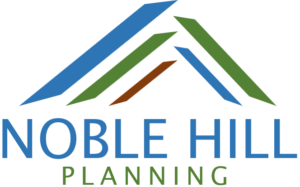When it comes to personal finance, there are few questions more common than, “should I pay off my mortgage?”
Generally, you’ll get one of two answers to this question:
- Compare your mortgage rate and the returns on your investment portfolio… if you can borrow cheaply from the bank and earn a premium in the stock market, then keep the mortgage (aka the “mortgage arbitrage approach”).
- Pay down all debt as soon as possible and as fast as possible (aka the “Dave Ramsey special”).
Like almost everything in personal finance, there is no cookie cutter answer. Everyone has different needs and constraints, so almost everyone will ultimately arrive at an answer tailored to their personal circumstances. Here are the major factors to consider when thinking about paying off your mortgage:
#1 – Your personal psychology
Are you risk averse or a high roller? Mortgage debt is often touted as the “good” kind of debt. Unlike credit card debt, mortgage debt often has a lowish, fixed interest rate and supports the purchase of a valuable asset.
However, a mortgage is still debt and paying it down can help reduce your financial risk. And doing so will almost certainly make you feel better. Just ask anyone who has successfully gone through Dave Ramsey’s program.
Paying off your mortgage also relieves you of a major hassle… the burden of dealing with mortgage servicers. Mortgage servicers do not have the best reputation for customer service. My mortgage servicer “forgot” to pay my property taxes one time (even after I reminded them). The fix required about 3 hours of my time and a good deal of frustration. So paying off your mortgage can help you feel better AND avoid the stress and hassle of dealing with the bureaucracy of your mortgage servicer. Not bad.
#2 – How old are you?
Your age can have a tremendous effect on your overall risk profile. Younger people have a longer investment time horizon, more career capital, and more time to bounce back from any hiccups along the way. The younger you are, the more sense it makes to maintain a mortgage. It could give you space to pursue other financial goals such as saving for retirement.
For the folks who are retired or will be soon, then reducing risk can offer fantastic rewards. And the #1 way to reduce risk? Aggressively pay down debt.
#3 – The level of interest rates
It’s pretty simple… if your mortgage rate is low compared to current interest rates, then (all else equal) keeping the mortgage is favored. If you can borrow at 3-4% and lend/invest at 5-7%+, then even after taxes, you’ll come out ahead. If bond yields are less than your mortgage rate, then paying down the mortgage can make more sense.
Unfortunately, in the current market environment, the decision to pay down a mortgage is not so easy.
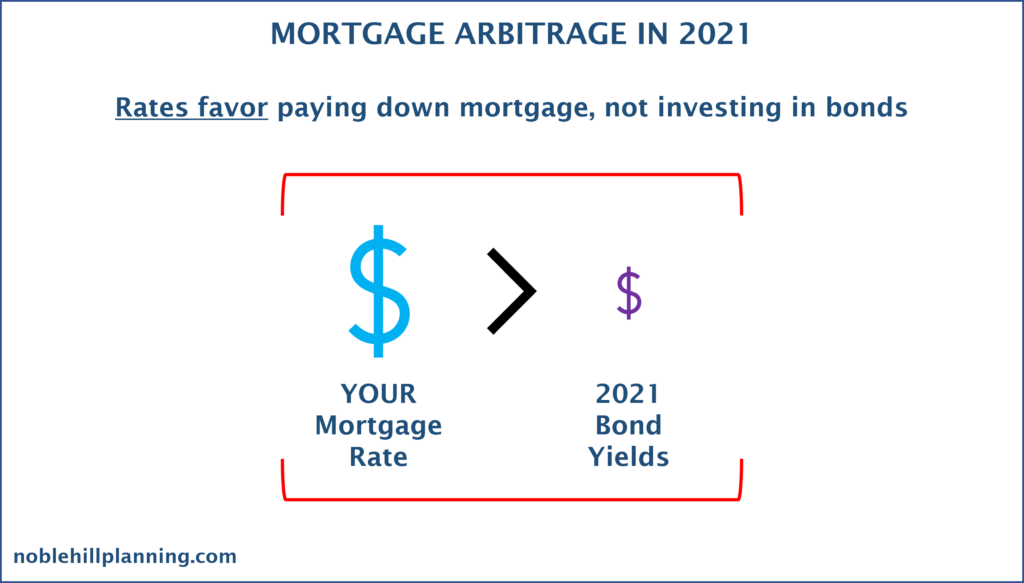
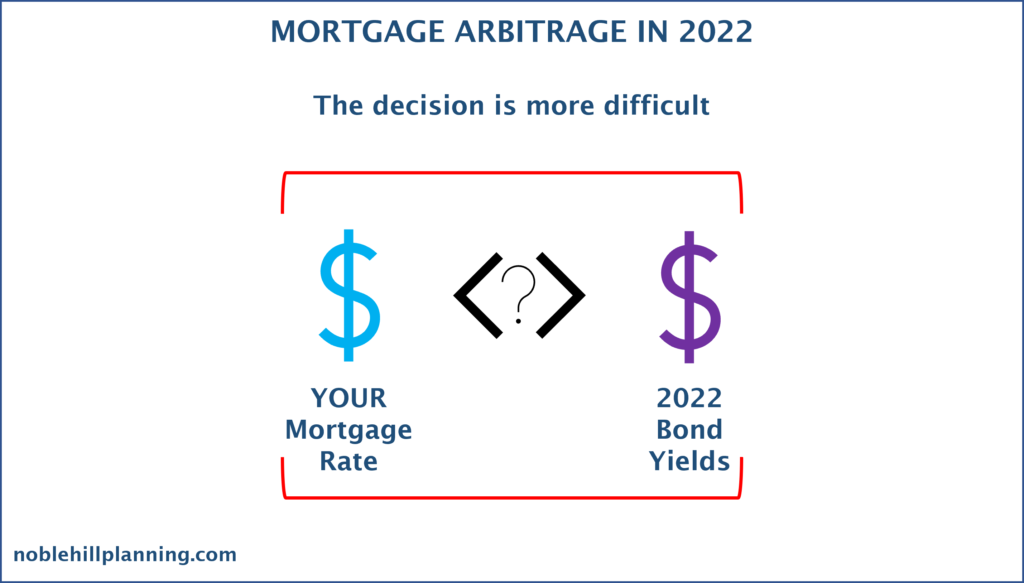
In 2021, after-tax yields on bonds were lower than pretty much everyone’s mortgage rates. In 2022, it’s not so cut and dry. If you have a mortgage rate of 3%, but the 10-year T-Note yields 2.85% (pre-tax), then paying down your mortgage still makes sense, but not by much. In 2021, the 10-year T-note yield was closer to 1.5%. So the gap has closed a good bit.
A note about comparing to “risky” returns
Many people like to compare their existing mortgage rate with returns from other risky assets such as stocks, cryptocurrency, etc. But that’s not the right way to think about it.
It’s better to compare your mortgage rate against something with a similar risk profile. For most borrower’s, a mortgage has two general characteristics. First, the mortgage is pretty close to “risk free”. That is, since you have to pay the mortgage, the obligation isn’t going anywhere (at least not without declaring bankruptcy or taking some other drastic action). Second, the mortgage has a fixed rate.
So you need to compare your mortgage rate against another investment that is close to risk free and has a fixed rate. I usually recommend the current yield on the 10-year Treasury Note. If you compare your mortgage rate against something risky like stocks, then your not using an apples-to-apples comparison. And this will lead to a flawed analysis.
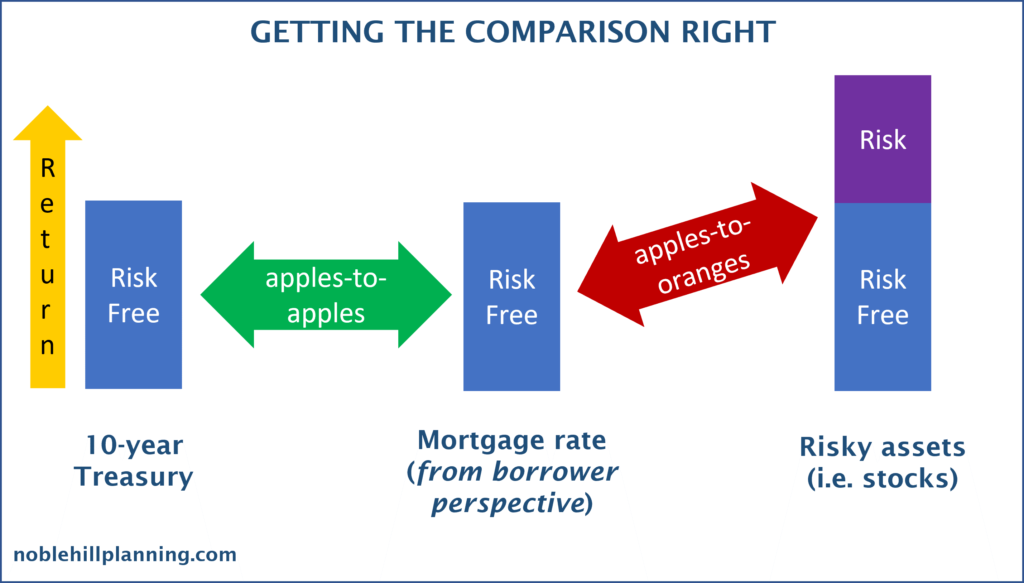
If you want to use your mortgage to take on more risk in your portfolio, then, by all means, feel free to incorporate the expected return of stocks into your analysis. But go in with your eyes wide open and understand that there is no free lunch. Leveraging your mortgage to invest in the stock market will add a good deal of extra risk, where as leveraging your mortgage to invest in 10-year Treasuries will not.
Quick aside on Series I Savings Bonds and TIPS
You can also include Series I Savings Bonds or TIPS in the mortgage arbitrage decision framework. If you purchase either of these instruments, you’re can expect to break even with headline inflation (i.e. a 0% “real” return). And as long as inflation remains elevated, paying down a low, fixed-rate mortgage will have a negative real return (akin to investing in a 3-4% bond when inflation is 8%+). So I-Bonds or TIPS offer an attractive parking spot for funds that you might use to pay down a low, fixed rate mortgage.
Here are the main points to understand with I-Bonds vs TIPS:
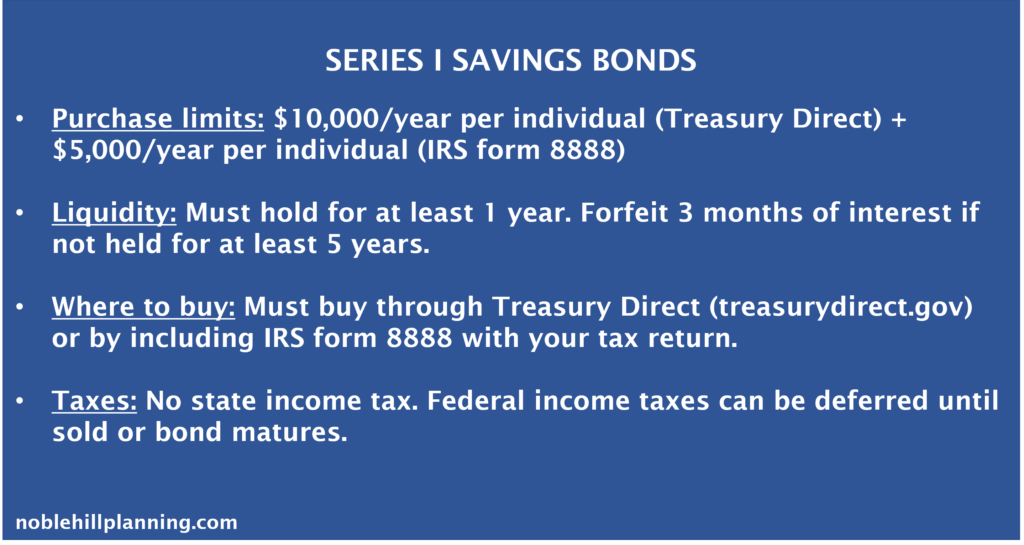
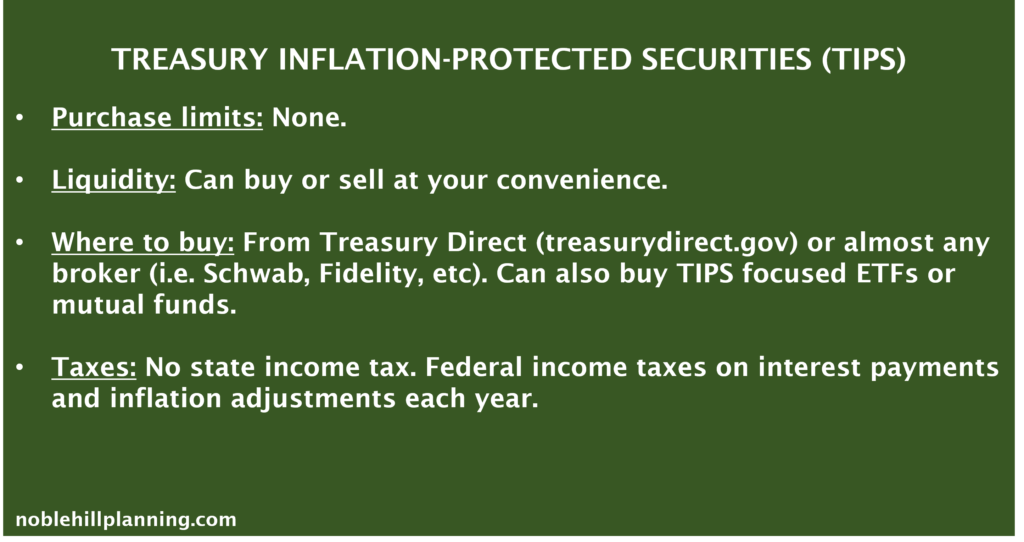
It’s my understanding that there is some wiggle room in the $10,000 annual purchase limit on I-Bonds through Treasury Direct. If you have a living/revocable trust, then you can buy $10,000 on an individual basis AND $10,000 in the name of your trust each year. There may be some extra hoops to jump through to get everything set up correctly on the website, but if you run into trouble you can contact the Treasury Direct support team and they should be able to help.
One final thing to consider… many financial advisors charging the typical 1%-of-assets fee won’t recommend I-Bonds to their clients due to the fact that they can’t charge a fee on them, so they often will steer clients towards TIPS or another investment that they can manage directly.
#4 – Liquidity
Liquidity matters. It might not matter today or tomorrow, but at some point in the future, liquidity will start to approach oxygen in your hierarchy of needs.
What is liquidity? It’s merely having the ability to access funds so you can pay for stuff. The fewer hurdles or obstacles between you and your money, the more liquidity you have. And there are all sorts of obstacles.
Take a 401(k) for example. If you want to withdraw funds, first you need to check with your employer about the 401(k) plan rules. Does the plan allow loans? How about in-service withdrawals? If not, then you’ll likely need to quit your job in order to access the funds within the 401(k) plan.
Regular brokerage accounts also have liquidity hurdles, mainly in the form of embedded capital gains and the potential for having to sell stocks in a down market. Nobody likes paying taxes and selling stocks when the market is down ranks highly among the worst financial mistakes possible.
All else being equal, having a mortgage can increase your liquidity as you get to hold the bank’s money and pay it back over a long period of time.
#5 – What’s the outstanding balance?
I worked with a client one time who had a net worth around $5 million. He also had about $100,000 remaining on his mortgage and plenty of cash available for emergencies (even after paying off the mortgage). What did I tell him? Just pay it off!
We can often get wrapped up in the minutiae of analysis and ignore the bigger picture. If your mortgage is a rounding error compared to your net worth, then paying it off for no other reason than simplifying your life can be a great idea. Definitely check to make sure you have enough cash for emergencies and all that, but don’t get stuck in “paralysis-by-analysis” mode for de minimus matters.
#6 – Taxes
The tax benefits of holding a mortgage are non-existent for most people these days. Very few people itemize their tax deductions, so they don’t get a tax deduction for mortgage interest paid.
And even if you do itemize, it’s likely that only a portion of your mortgage interest provides any real tax benefit since the standard deduction levels are so high.
For example, if you are married filing jointly (and both under 65), then the standard deduction for 2022 is $25,900. Let’s assume you have $20,000 of non-mortgage deductions and $10,000 of mortgage interest. If you choose to itemize, you only get the benefit of deducting an extra $4,100 over the standard deduction amount, not the full $10,000.
For most people, mortgages are tax losers.
#7 – Saving for retirement
In many cases, saving for retirement should take priority over paying down a mortgage. Be sure to take advantage of any matching funds offered by your employer’s retirement plan, and calculate the tax benefits of retirement account contributions (including health savings accounts). However, don’t forget the costs associated with your 401(k) plan. Many plans are stuffed with fees from bad investment funds, recordkeeping charges, and other admin costs. Some employers will cover these costs, but some will pass them along to the participants. In some cases, saving in a taxable brokerage account can be better than your 401(k).
It’s also helpful to remember that saving for retirement and paying off your mortgage are not mutually exclusive. Paying down your mortgage can support your retirement goals by freeing up additional cash flow for future retirement contributions.
My conclusion
I’m a big fan of debt reduction when it comes to personal finance. Most people can get plenty of risk exposure and meet their financial goals without the leverage that comes from debt. Excess debt can also introduce the possibility of financial ruin. That is, when times get tough, lots of debt can impair your ability to weather the storm and make it to the other side. We saw this over and over during 2008-2009. If you need to add durability and resilience to your financial life, paying down your mortgage or other debt is a great place to start.
On the flip side, most people need a mortgage to buy a house and that’s ok! I have a mortgage and I’m fine with it, but I hope to pay it off as early as I can. And that should be the aspiration for most people. Everything else equal… less debt + more saving and investing = a better financial life.
